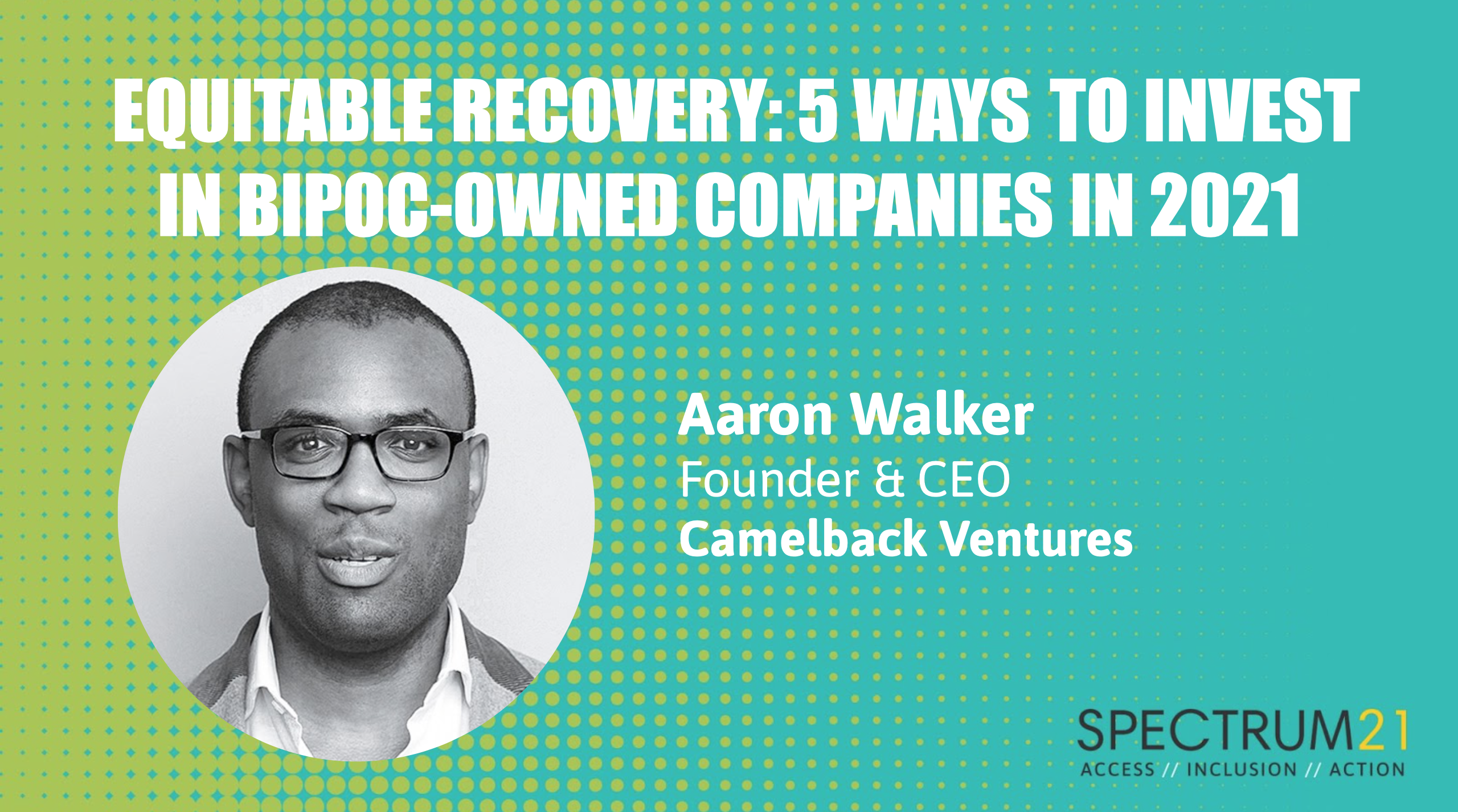Addressing racial inequality in our economy must include investments in BIPOC-owned businesses. By empowering founders and business owners of color with the monetary tools needed for success, impact investors can help advance racial justice and create more financial resiliency within these communities.
At SPECTRUM21 Virtual, Aaron Walker, Founder & CEO of Camelback Ventures discussed the most effective ways to invest in BIPOC-owned companies in 2021. Camelback Ventures supports entrepreneurs of color and women entrepreneurs with investments, guidance, and network connections. Walker said what motivated him to found the company was the opportunity gap these entrepreneurs face.
“I do what I do because genius is equally distributed but opportunity is not,” he said.
One key point of Walker’s session was that investing in BIPOC-owned businesses is a choice — and it’s one that more investors need to start making intentionally. To highlight this point, he used an example of a recent contribution to Camelback Ventures itself.
“Mackenzie Scott, one of the wealthiest women on the planet, contributed more in one day than Camelback had received in the previous three years combined, with no strings attached,” he said. “… What Mackenzie proved is that investing in Black, Indigenous, and people of color leaders is a choice. It’s only hard because we make it so.”
He also emphasized that giving entrepreneurs of color money isn’t enough. Investors must also facilitate connections for those entrepreneurs to be as successful as possible.
“Opening your network for real matters — not just sending an email on someone’s behalf, but showing up to the meeting with them, even hosting it, offering a platform to the places where deals are actually made,” Walker said.
He finished his session by sharing a proverb.
“If the yam does not grow well, do not blame the yam. It is because of the soil. This proverb strikes me as right. We spend so much time, so much time, focusing on what’s wrong with entrepreneurs of color, and we don’t spend any time thinking about what’s in the soil. And we should, because the soil we grow in determines wheter we grow well. … The problem was never the founders, it was the soil. It was the soil that was filled with the lead-like impact of white supremacy, the dangerous chemical additives of misogyny.”
Watch his full session above.






